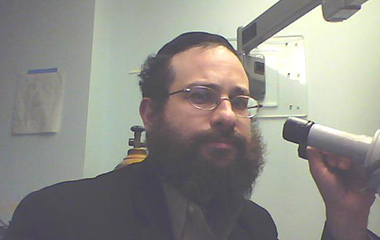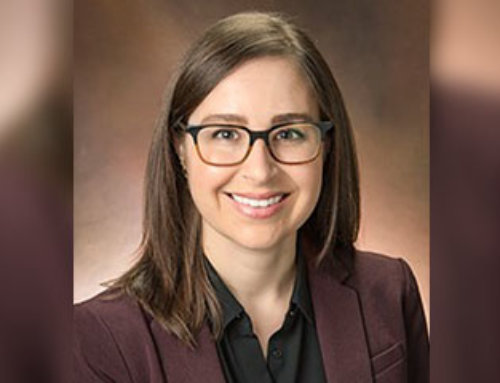2006 Career Advancement Study Award
The educational and professional path of American Academy of Sleep Medicine member Kevin Hellman, PhD, demonstrates how the American Academy of Sleep Medicine Foundation (AASM Foundation) can play a vital role in the career development of a young sleep scientist.
Hellman’s interest in sleep research was born at the University of Pennsylvania during his doctoral studies with Ted Abel, PhD, professor of biology and director of the biological basis of behavior program. They investigated the molecular mechanisms of sleep-dependent memory consolidation.
After Penn, he went to the University of Chicago to do his postdoctoral work under the mentorship of Peggy Mason, PhD, professor and chair of the Committee on Neurobiology. Her expertise on brainstem autonomic physiology appealed to Hellman’s scientific aspirations.
Because Hellman desired to explore a narrower focus of sleep/wake control of brainstem autonomic physiology, Mason encouraged him to obtain support to further his sleep research. At this critical juncture in his career, the AASM Foundation was able to provide the funding that Hellman needed.
Part of the AASM Foundation vision is to promote the entry of young physicians and scientists into sleep research and academic sleep medicine. So in 2006 Hellman received a Career Advancement Study Grant from the AASM Foundation for the proposal, “Neurophysiological investigation of pain-induced arousal.” The grant helped him take the next step in his career as a sleep scientist.
“The funding of my proposal resulted in a sequence of experiments that provided preliminary data for future NIH proposals – an important ingredient in establishing an independent sleep laboratory,” said Hellman. “I am very grateful for the grant and the support, and I continue to reap the benefits.”
The support from the AASM Foundation also enabled him to make important contributions to the field. In 2007 Hellman published a study in the Journal of Neurophysiology that shed light on how sleep/wake modulatory neurons regulate pain. He is in the process of submitting additional evidence for publication describing how brainstem neurons participate in pain-induced arousal.
The research also took Hellman in unexpected directions, generating insights about the brainstem participation in opioid-induced central sleep apnea. In 2009 his study of how opioids microinjected within the brainstem impair respiration during sleep was published in the American Journal of Regulatory, Integrative, and Comparative Physiology.
Hellman noted that the grant also gave him confidence to continue submitting papers based on his graduate work. Most recently this led to the publication of, “Genetic evidence for a role for protein kinase A in the maintenance of sleep and thalamocortical oscillations,” which appeared in the January 2010 issue of SLEEP.
Now as a research assistant professor in the department of neurobiology at the University of Chicago, Hellman recognizes that AASM Foundation support helped him get a foothold in the field. He also believes that the AASM Foundation grant program continues to play an important role in the development of sleep scientists.
“I think it is a well-known phenomenon that medicine can be compartmentalized,” he explained. “And if other societies draw scientists away from sleep medicine, this will be detrimental. AASM Foundation support of scientists during transition periods increases the likelihood of an individual scientist continuing to study sleep.”
Updated March 29, 2018






